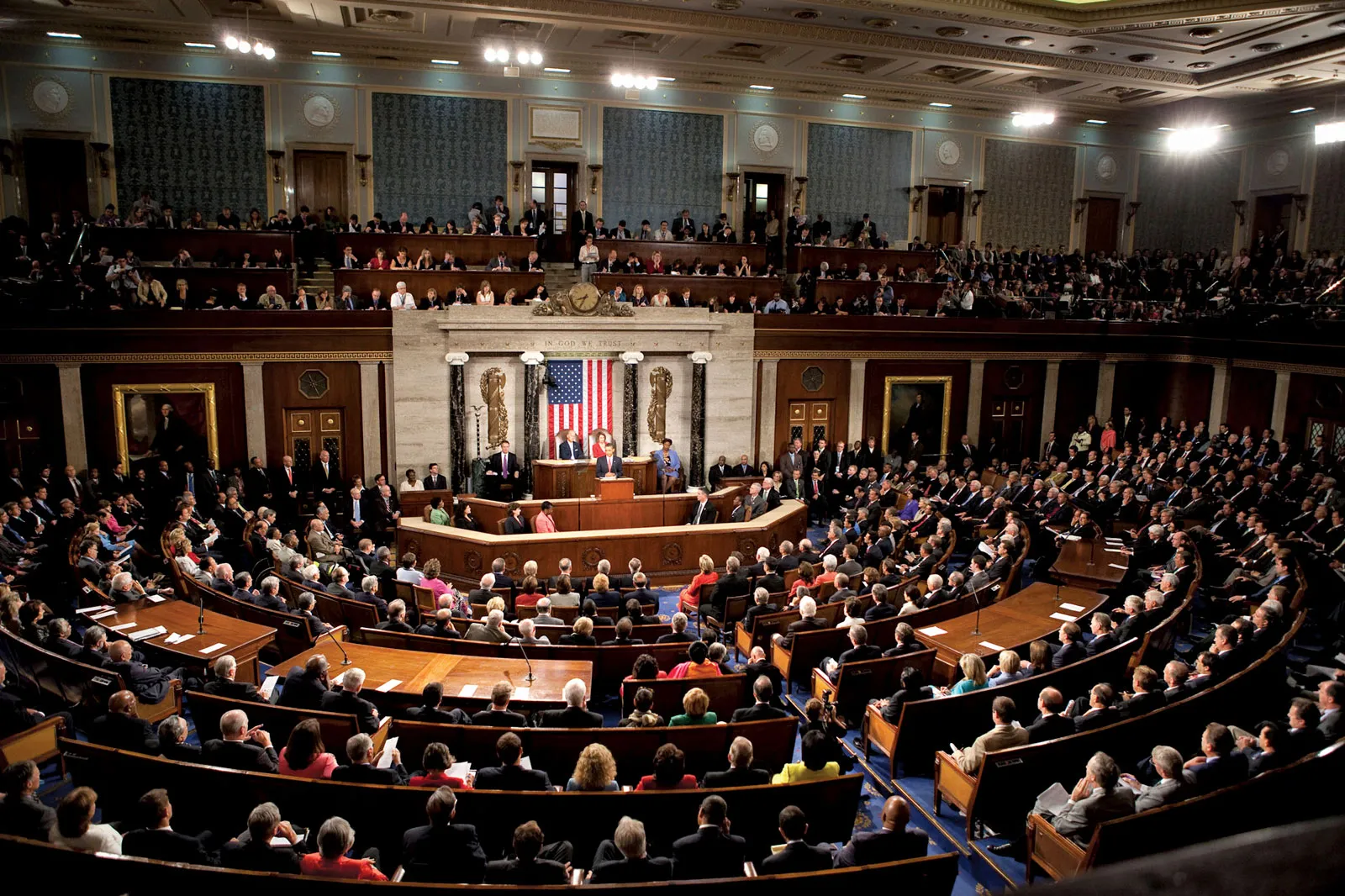The U.S. House of Representatives delivered an overwhelming bipartisan vote in favor of the Epstein Files Transparency Act, a measure designed to compel the Department of Justice to release documents related to the long-running federal investigations surrounding Jeffrey Epstein. The vote — 427 to 1 — reflected rare unanimity across party lines, with only one lawmaker opposing the bill: Representative Clay Higgins of Louisiana.
Higgins, a Republican and vocal ally of President Trump, stood alone in dissent as the chamber advanced legislation intended to bring greater public visibility to a case that has generated controversy, unanswered questions, and public distrust for years. While the bill received near-universal backing from Democrats and Republicans alike, Higgins maintained his steadfast position that the measure is fundamentally flawed and poses risks that lawmakers have underestimated.
In a detailed statement released shortly after the vote, Higgins explained his reasoning and reaffirmed that his opposition was not sudden or unexpected. “I have been a principled ‘NO’ on this bill from the beginning,” he wrote, emphasizing that his objections have remained consistent throughout the legislative process. “What was wrong with the bill three months ago is still wrong today.”
According to Higgins, the bill as written undermines long-standing standards in the American criminal justice system. He argued that forcing broad disclosure of investigative files — even in a case as publicly scrutinized as Epstein’s — could create consequences that extend far beyond the intended scope of oversight or transparency. In his view, the legislation risks exposing sensitive information that could impact individuals who were never accused of wrongdoing.
His concerns center largely on the potential identification of people who interacted with investigators in various capacities throughout Epstein-related inquiries. “As written, this bill reveals and injures thousands of innocent people – witnesses, people who provided alibis, family members, etc.,” Higgins stated. He warned that releasing investigative materials in bulk, with minimal restrictions, could inadvertently expose private citizens to invasive public scrutiny, misinterpretation, or unwarranted association with a case that has long carried intense media fascination.
The congressman also highlighted what he describes as the dangers of submitting such information to a highly reactive media environment. “If enacted in its current form, this type of broad reveal of criminal investigative files, released to a rabid media, will absolutely result in innocent people being hurt. Not by my vote.” With these remarks, Higgins framed his stance not as a defense of secrecy, but as a defense of principle and procedural norms he believes the bill undermines.
Despite Higgins’ objections, the scale of the vote made clear that the vast majority of lawmakers believe the public interest in transparency outweighs the risks he outlined. For supporters of the bill, releasing the files is a way to restore confidence in federal institutions, address suspicions about Epstein’s connections, and confront the long-standing public perception that the full truth of the case has never been brought to light.
The Epstein Files Transparency Act has been presented by its advocates as a necessary step to resolve a credibility gap between the public and the justice system. Epstein’s death in federal custody, the delayed release of records, and the high-profile individuals connected to him have all contributed to speculation and distrust. Lawmakers backing the bill argue that releasing the files is essential to counter misinformation, dispel rumors, and demonstrate that the government is not concealing information that should rightfully be available to the public.
Many also argue that transparency in this instance may help bring clarity to lingering questions about past prosecutorial decisions, federal oversight, and the range of individuals whose interactions with Epstein have prompted widespread scrutiny. With both parties supporting the measure overwhelmingly, the bill’s passage highlights rare agreement in a Congress otherwise divided on many major issues.
Supporters emphasize that transparency does not equate to indiscriminate disclosure. They argue that the Justice Department retains the ability to apply redactions when necessary to protect sensitive information, and that the goal is not to expose private individuals but to release investigative documentation responsibly. Proponents contend that appropriate safeguards can be applied while still giving the public access to materials that have long been withheld without clear justification.
Still, Higgins remains unconvinced that such safeguards are sufficient. Throughout the process, he has maintained that the bill, as drafted, opens the door too widely and lacks the precision needed to avoid collateral harm. He views the proposal as a departure from established legal standards governing investigative material and the privacy of uninvolved individuals. His vote reflects a belief that once such a precedent is set, it could influence how sensitive files are handled in future cases as well.
Higgins’ dissenting position places him in an unusual spotlight. As the lone representative opposing a bill with near-universal support, his vote stands out not only for its rarity but for the contrast it presents against a backdrop of bipartisan cooperation. In an era where congressional divisions are routine, a 427-1 vote is itself noteworthy — and it underscores the extent to which Epstein-related transparency is viewed as a priority across ideological lines.
Even so, Higgins’ arguments tap into a broader debate about transparency and privacy in high-profile investigations. The challenge of balancing public interest with individual rights is a longstanding tension in government oversight, and the Epstein case magnifies that conflict due to its prominence and the number of powerful figures historically associated with it.
As public attention remains fixed on the matter, the bill now moves to the Senate, where it will undergo further examination and debate. Senators will consider the same questions the House confronted: how to ensure responsible transparency, how to handle the release of large volumes of investigative material, and how to protect individuals who are not accused of wrongdoing but whose names may appear in the records.
The Senate’s approach could involve amendments, additional privacy protections, or clarifications designed to address the concerns raised — including those articulated by Higgins. Whether or not the upper chamber shares his specific objections, the legislative process allows for opportunities to refine the bill before any final version reaches the president’s desk.
Public reaction to the House vote has been significant, with strong interest in how quickly the files might be released if the legislation becomes law. The Justice Department would be tasked with determining the appropriate procedures for disclosure, including redactions, timelines, and the classification of sensitive material. The scope and scale of the files — along with their complexity — mean the process would likely unfold over time rather than in a single release.
For many Americans, the Epstein case represents unresolved questions about influence, accountability, and transparency. The House’s decisive vote signals an intent to confront those concerns more directly, while Higgins’ lone “no” vote underscores the challenges involved in balancing openness with caution.
Whether the Senate will advance the bill swiftly or propose substantial changes remains to be seen. What is clear is that the debate around the Epstein files — and the government’s handling of them — will continue as lawmakers, federal agencies, and the public await the next phase of the legislative process.
The Epstein Files Transparency Act’s future now rests in the hands of senators who will determine whether the House’s near-unanimous push for disclosure will move forward unchanged, be modified, or face further contention. For now, the House’s vote marks a significant moment in Congress’s ongoing effort to address public distrust and bring greater clarity to one of the most scrutinized cases in recent memory.

Emily Johnson is a critically acclaimed essayist and novelist known for her thought-provoking works centered on feminism, women’s rights, and modern relationships. Born and raised in Portland, Oregon, Emily grew up with a deep love of books, often spending her afternoons at her local library. She went on to study literature and gender studies at UCLA, where she became deeply involved in activism and began publishing essays in campus journals. Her debut essay collection, Voices Unbound, struck a chord with readers nationwide for its fearless exploration of gender dynamics, identity, and the challenges faced by women in contemporary society. Emily later transitioned into fiction, writing novels that balance compelling storytelling with social commentary. Her protagonists are often strong, multidimensional women navigating love, ambition, and the struggles of everyday life, making her a favorite among readers who crave authentic, relatable narratives. Critics praise her ability to merge personal intimacy with universal themes. Off the page, Emily is an advocate for women in publishing, leading workshops that encourage young female writers to embrace their voices. She lives in Seattle with her partner and two rescue cats, where she continues to write, teach, and inspire a new generation of storytellers.









